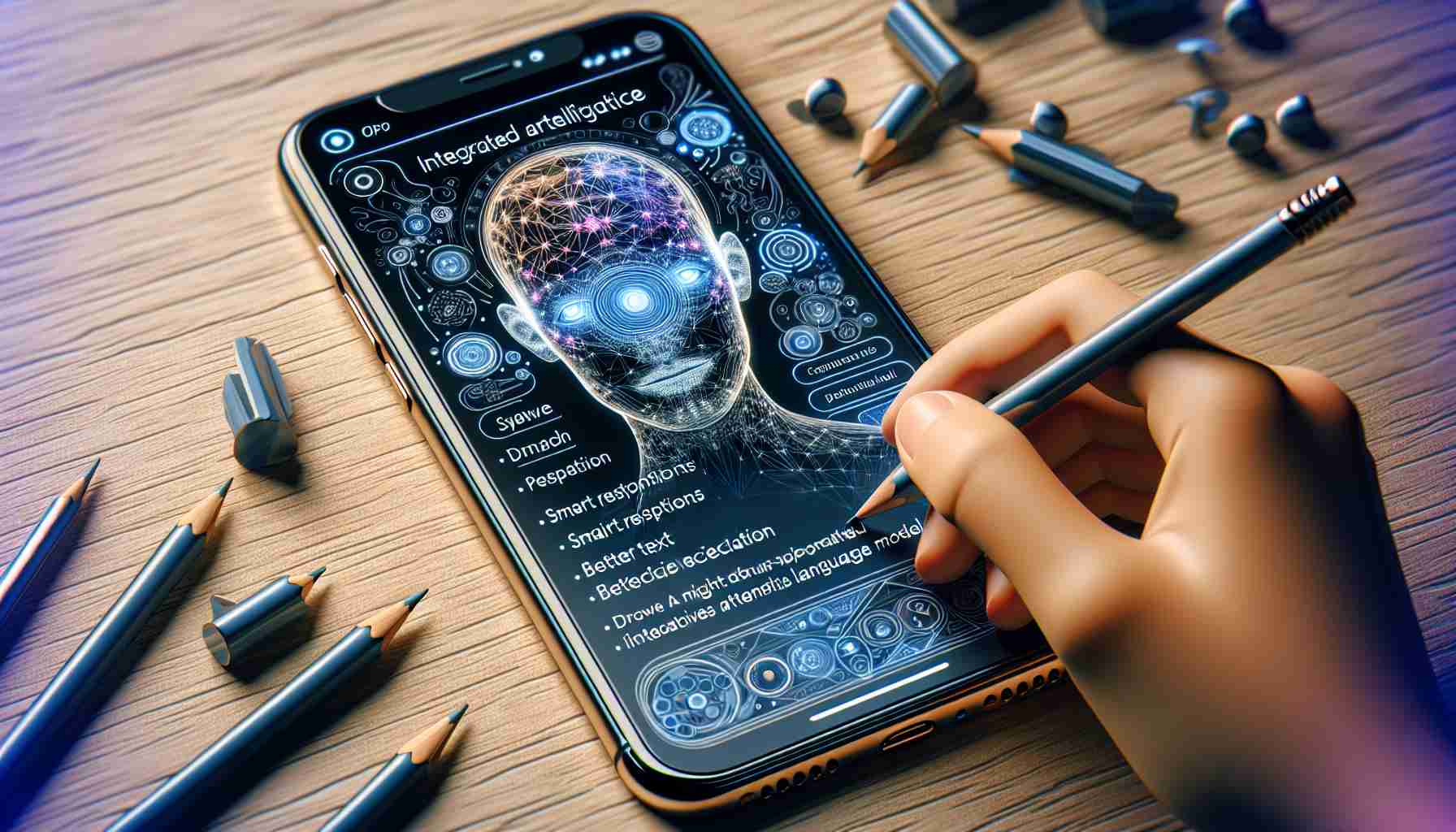Apple is taking a leap into the future of technology by developing its own comprehensive artificial intelligence language model, which is expected to revolutionize the way iPhones support AI-driven abilities. Unlike other major tech companies who may rely on cloud-based solutions, Apple is focusing on device-based implementation for their AI model.
The move signifies Apple’s commitment to privacy and speed, according to reliable tech insider Mark Gurman. With device-based processing, Apple intends to ensure that user data remains secure on the iPhone, without the need to be sent to or processed in the cloud. This methodology, however, may mean the initial version could lack some of the features that cloud-based alternatives offer.
To mitigate any shortcomings, Apple is reportedly considering licensing deals with Google and other AI companies, allowing it to provide a complete set of features while maintaining a heavy focus on user security and operational speed.
Excitement is mounting for Apple’s World Wide Developers Conference (WWDC) 2024, scheduled to take place between June 10th and 14th. It’s widely anticipated that the event will showcase significant software announcements, including the introduction of iOS 18, iPadOS 18, macOS 15, and watchOS 11. Within these updates, the steps Apple has taken towards integrating sophisticated AI technologies are eagerly awaited.
As Apple gears up to make these monumental strides, the tech community is buzzing about the potential changes and improvements coming to Apple devices. The integration of AI capabilities within the iPhone hardware is a bold move that points towards a future where our smartphones are smarter than ever.
Artificial Intelligence on Mobile Devices: Privacy and Performance Concerns
The development of an in-house AI language model by Apple for iPhones raises several important questions, such as:
– How will Apple’s device-based AI processing compare to current cloud-based solutions in terms of capability?
– What potential privacy benefits does device-based AI processing provide?
– How might this affect Apple’s relationship with existing partners and cloud service providers?
One key challenge associated with device-based AI processing is ensuring that the model’s performance meets user expectations while operating solely on-device without the aid of powerful server farms. Unlike cloud-based models, which can tap into extensive computing power, on-device processing must work within the constraints of mobile hardware which might limit complexity or require more efficient AI modeling.
Controversies could arise around the exclusivity of these AI features to new hardware, possibly rendering older devices obsolete more quickly if they do not support the new AI capabilities. This is an ongoing concern with each hardware release cycle, potentially contributing to increased electronic waste and consumer costs.
The advantages of Apple’s approach include:
1. Privacy: User data does not need to leave the device for processing, which is a significant benefit for privacy-conscious consumers.
2. Speed: Local processing eliminates latency associated with data transmission to and from the cloud, making the AI’s responses almost instantaneous.
3. Security: Keeping data on the device can reduce the threat of data breaches significantly.
On the other hand, potential disadvantages include:
1. Limited Computing Power: The device’s processing capabilities may limit the complexity and speed of the AI model.
2. Feature Parity: Device-based AI may lack some of the more advanced features provided by cloud-based models, especially if the cloud models leverage continuous updates and large-scale data sets for learning.
3. Resource Consumption: Intensive on-device AI processing could lead to faster battery depletion, necessitating hardware optimizations or more frequent charging.
For additional information regarding Apple’s mission and products, including their approach to AI and privacy, you can visit Apple’s official website at Apple. Moreover, details on their upcoming events, such as WWDC, will also be featured on their website closer to the event dates. Please ensure that you visit legitimate and official sources for the most accurate and updated information.

